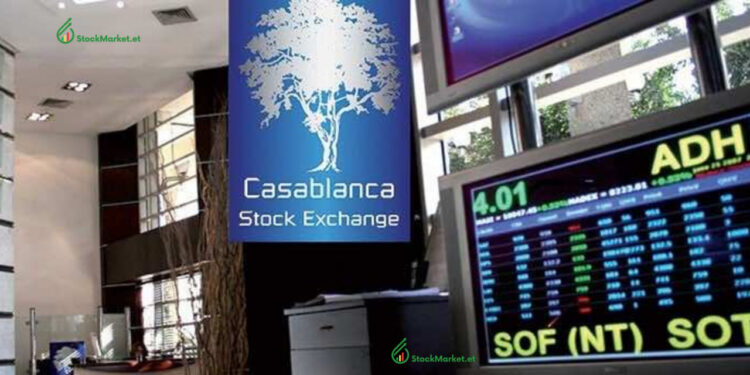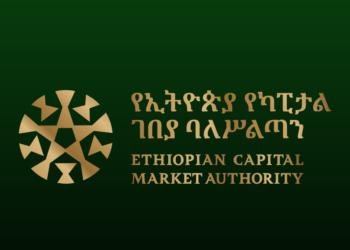During a compelling interview with The Reporter magazine, Dr. Brook Taye, the Director General of the Ethiopian Capital Market Authority (ECMA), shed light on an intriguing development. Among the thought-provoking topics discussed, Dr. Brook Taye revealed that the ECMA is looking closely toward the Casablanca Stock Exchange, exploring potential insights and lessons to be obtained.
In this article, Stockmarket.et looked over the Casablanca stock exchange to get insights into the market’s operation and performance.
The Casablanca Stock Exchange (La Bourse de Casablanca) is a stock exchange in Casablanca, Morocco. It stands out as one of the top-performing stock exchanges in the Middle East and North Africa (MENA) region. It is the third-largest stock market in Africa, following the Johannesburg Stock Exchange in South Africa and the Nigerian Stock Exchange in Lagos. The CSE’s remarkable performance highlights its significance and influence within the African financial landscape.
With a remarkable value trade of 185.5 million USD, the Casablanca Stock Exchange demonstrates its robust trading activity and the significant financial transactions taking place within its market. Furthermore, with a market capitalization of 62.4 billion USD, the exchange solidifies its position as a substantial and influential player in the financial landscape.
The exchange is relatively modern, having experienced reform in 1993. The CSE installed an Electronic trading platform and is now organized as two markets: the Central Market and a Block Trade Market ( refers to a substantial transaction involving a large number of shares or a significant dollar value of a particular stock ), for block trades.
The exchange is regulated by the Financial Markets Authority (Autorité Marocaine du Marché des Capitaux, AMMC), which oversees the fair and transparent functioning of the market, ensures compliance with regulations, and protects investors’ interests.
The exchange operates several benchmark indices, including the Moroccan All Shares Index (MASI), which tracks the performance of all listed stocks, and the Moroccan Most Active Shares Index (MADEX), which focuses on the most actively traded stocks. (refer what stock index is in our previous article https://www.stockmarket.et/introduction-to-the-stock-market/ ).
The Casablanca Stock Exchange is home to a diverse range of domestic and international companies. These include large publicly traded corporations, financial institutions, and smaller companies representing various sectors such as banking, telecommunications, energy, and consumer goods. In 2020, a total of 76 companies were listed on the Casablanca Stock Exchange (CSE).
In addition to stocks, the Casablanca Stock Exchange offers other investment instruments such as bonds, treasury bills, and sukuk (Islamic bonds). These products provide investors with diverse options to allocate their capital. The Casablanca Stock Exchange has been actively working to enhance the market ecosystem. Initiatives include promoting market liquidity, improving transparency, introducing new financial instruments, and attracting foreign investors.
Ethiopia can take note of the CSE’s success and aim to emulate its performance and influence in the region.
- Market Infrastructure: As mentioned above the CSE underwent reform in 1993, including the installation of an electronic trading platform. Ethiopia can learn from this experience and prioritize the development of modern and efficient market infrastructure, including adopting electronic trading systems, which can enhance transparency, speed, and accessibility in trading operations.
- Regulatory Framework: The CSE is regulated by the Financial Markets Authority (AMMC), which ensures the fair and transparent functioning of the market, compliance with regulations, and investor protection. Ethiopia can strengthen its existing regulatory framework to ensure the proper oversight of its stock market, fostering investor confidence and market integrity.
- Market Indices: The CSE operates benchmark indices such as the Moroccan All Shares Index (MASI) and the Moroccan Most Active Shares Index (MADEX). Ethiopia can consider developing its own market indices to track the performance of listed stocks, providing investors with valuable market insights and benchmarks for their investment decisions.
- Market Diversity: The CSE is home to various domestic and international companies representing various sectors, including banking, telecommunications, energy, and consumer goods. Ethiopia can aim to attract a diverse range of companies to its stock market, fostering a vibrant and well-rounded investment environment.
- Investment Instruments: In addition to stocks, the CSE offers other investment instruments such as bonds, treasury bills, and sukuk (Islamic bonds). Ethiopia can explore the introduction of diverse investment products to cater to different investor preferences and increase market opportunities.
- Market Ecosystem Enhancement: The CSE has actively worked on initiatives to enhance its market ecosystem, including promoting market liquidity, improving transparency, introducing new financial instruments, and attracting foreign investors. Ethiopia can take inspiration from these initiatives and implement similar strategies to foster a dynamic and attractive stock market ecosystem.
- Leveraging Private Banking Sector: Ethiopia’s thriving private banking sector can play a significant role in the success of its stock market. By leveraging the existing infrastructure and expertise within this sector, Ethiopia can capitalize on the knowledge and resources available to create a conducive environment for the establishment and growth of a robust stock market.
By adopting best practices observed in the CSE, Ethiopia can lay the foundation for a well-regulated and vibrant stock market that contributes to the country’s economic growth and development. Careful consideration and adaptation of these initiatives to suit Ethiopia’s unique context and aspirations will be instrumental in realizing the full potential of a thriving stock market in the country.























